MacJannet Prize 2010 Winners
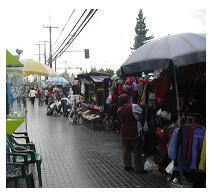 The first place winner, which received $5000, was PuentesUC (Bridges UC) at the Pontificia Universidad Católica de Chile. Launched in 2002 to set up a link between the university and local municipalities, it is a model of collaboration to maximize mutual capacities to further learning and local development. Its general objective is to contribute to student learning and community development, generating a permanent link between the university and local municipalities. Participants are students, professors, town officers and authorities in continuous learning and development. The program’s name refers to a bridge that links academia with city authorities and workers. Since its creation, the program has developed over 1000 projects in 14 municipalities with the participation of 6500 students and 200 professors of all faculties. These projects entail coursework, professional practices, thesis or dissertations, volunteerism, extension and research. Read PuentesUC’s full profile.
The first place winner, which received $5000, was PuentesUC (Bridges UC) at the Pontificia Universidad Católica de Chile. Launched in 2002 to set up a link between the university and local municipalities, it is a model of collaboration to maximize mutual capacities to further learning and local development. Its general objective is to contribute to student learning and community development, generating a permanent link between the university and local municipalities. Participants are students, professors, town officers and authorities in continuous learning and development. The program’s name refers to a bridge that links academia with city authorities and workers. Since its creation, the program has developed over 1000 projects in 14 municipalities with the participation of 6500 students and 200 professors of all faculties. These projects entail coursework, professional practices, thesis or dissertations, volunteerism, extension and research. Read PuentesUC’s full profile.
The second place winners, who each received $2500, were Community Awareness Initiatives Responsibly-Directed by Engineers (CAIRDE) at the National University of Ireland, Galway and the HIV/AIDS Prevention and Education Program at the University of Mines and Technology (Ghana).
 Community Awareness Initiatives Responsibly-Directed by Engineers (CAIRDE) is a service-learning program where all third-year Mechanical and Biomedical Engineering students apply academic knowledge and skills to address genuine community needs. Established in 2003 by Professor Abhay Pandit, it became an embedded part of the undergraduate Mechanical, Biomedical, and Electrical Engineering programs as part of a required module that previously had been solely lecture-based. The emphasis is on interacting directly with intended beneficiaries of projects. Read CAIRDE’s full profile.
Community Awareness Initiatives Responsibly-Directed by Engineers (CAIRDE) is a service-learning program where all third-year Mechanical and Biomedical Engineering students apply academic knowledge and skills to address genuine community needs. Established in 2003 by Professor Abhay Pandit, it became an embedded part of the undergraduate Mechanical, Biomedical, and Electrical Engineering programs as part of a required module that previously had been solely lecture-based. The emphasis is on interacting directly with intended beneficiaries of projects. Read CAIRDE’s full profile.
The HIV/AIDS Prevention and Education Program at the University of Mines and Technology began with an FM radio station called Dynamite FM established in 1998. The station is used to educate the local community on environmental issues, HIV/AIDS, public hygiene, and other issues. The open air broadcast on HIV/AIDS and related problems is presented by experts and students and after the program, listeners are permitted to phone in to ask questions or make contributions. Thus the program is interactive and is community based. The program then expanded to field work where designated students and staff visit mining communities to interact with them; administer questionnaires on HIV/AIDS prevention; put on various seminar discussions, public fora, video presentations and plays to educate the local population on HIV/AIDS prevention; and to distribute condoms in the local mining camps. Since the program’s inception, the HIV infection rate in Tarkwa, Ghana has dropped from over 4% to 2.5%. Read the full profile.
The five third place winners, who each received $1000 to fund their programming, are described below:
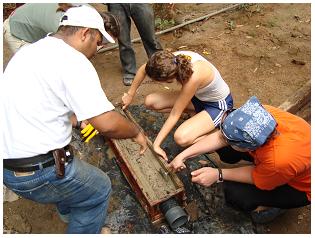 Community Builders at Wartburg College (USA) is an intergenerational collaboration of people and organizations designed to put into action the goal of “Taking responsibility for our communities, and making them better through public action,” both locally and globally. The purpose of Community Builders is to help people be better citizens by talking about the importance of communities, practicing the skills that can help improve communities, and engaging in projects that support communities. Each participant is placed in a “neighborhood” which has 7 to 12 people of various ages led by Wartburg students. In addition, during May Term, Community Builders college students travel to Nicaragua to deliver school supply and hygiene kits to children and teachers and undertake additional service projects identified by Self-Help International. Read Community Builders’ full profile.
Community Builders at Wartburg College (USA) is an intergenerational collaboration of people and organizations designed to put into action the goal of “Taking responsibility for our communities, and making them better through public action,” both locally and globally. The purpose of Community Builders is to help people be better citizens by talking about the importance of communities, practicing the skills that can help improve communities, and engaging in projects that support communities. Each participant is placed in a “neighborhood” which has 7 to 12 people of various ages led by Wartburg students. In addition, during May Term, Community Builders college students travel to Nicaragua to deliver school supply and hygiene kits to children and teachers and undertake additional service projects identified by Self-Help International. Read Community Builders’ full profile.
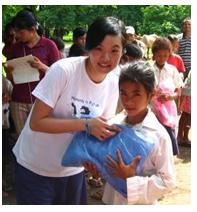 Humanity in Focus at the University of Hong Kong (China) was set up by a group of students who returned from a service learning project in Cambodia in summer 2006. It is one of the first youth initiated and managed NGOs in Hong Kong focusing on global humanity and poverty issues. Since summer 2006, HIF has developed from a group of 5 founders to an organization that has attracted youth from various universities, secondary schools and young professionals from various fields. In Cambodia, the Development Project Team of HIF works together with local community leaders to carry out development projects, which aim at empowering low-income families by providing them with the necessary materials, social support and skills. In Hong Kong, HIF educates and mobilizes local youth to discuss world poverty and humanitarian issues via the educational programs offered by its Youth Education Team. Each year, it organizes the Young Global Citizenship Program (YGCP) with financial support from Oxfam Hong Kong. The YGCP aims at training and empowering university students to become advocates for change via research, training and frontline services. Read the Humanity in Focus full profile.
Humanity in Focus at the University of Hong Kong (China) was set up by a group of students who returned from a service learning project in Cambodia in summer 2006. It is one of the first youth initiated and managed NGOs in Hong Kong focusing on global humanity and poverty issues. Since summer 2006, HIF has developed from a group of 5 founders to an organization that has attracted youth from various universities, secondary schools and young professionals from various fields. In Cambodia, the Development Project Team of HIF works together with local community leaders to carry out development projects, which aim at empowering low-income families by providing them with the necessary materials, social support and skills. In Hong Kong, HIF educates and mobilizes local youth to discuss world poverty and humanitarian issues via the educational programs offered by its Youth Education Team. Each year, it organizes the Young Global Citizenship Program (YGCP) with financial support from Oxfam Hong Kong. The YGCP aims at training and empowering university students to become advocates for change via research, training and frontline services. Read the Humanity in Focus full profile.
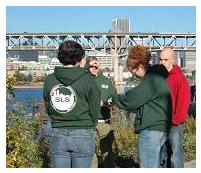 Student Leaders for Service (SLS) at Portland State University (USA) is rooted in PSU’s commitment to community outreach and engagement. SLS provides students with opportunities to significantly address issues in the surrounding communities while simultaneously preparing future civic leaders. Through this program, 25 students make a commitment to serve ten hours a week during the academic year at a local organization where they provide direct service to address community needs. Students act as liaisons between the university and the community, connecting institutional resources to partner organizations in an effort to build their capacity. Since 1999, over 6,000 SLS volunteers have provided 82,000 hours of service, to 88 projects to the Portland community. Over 125 faculty and staff have also participated in SLS programming. In recent years, SLS has diversified its activities to include global projects at the American University in Cairo and the University of Science in Ho Chi Minh City, Vietnam. Read Student Leaders for Service’s full profile.
Student Leaders for Service (SLS) at Portland State University (USA) is rooted in PSU’s commitment to community outreach and engagement. SLS provides students with opportunities to significantly address issues in the surrounding communities while simultaneously preparing future civic leaders. Through this program, 25 students make a commitment to serve ten hours a week during the academic year at a local organization where they provide direct service to address community needs. Students act as liaisons between the university and the community, connecting institutional resources to partner organizations in an effort to build their capacity. Since 1999, over 6,000 SLS volunteers have provided 82,000 hours of service, to 88 projects to the Portland community. Over 125 faculty and staff have also participated in SLS programming. In recent years, SLS has diversified its activities to include global projects at the American University in Cairo and the University of Science in Ho Chi Minh City, Vietnam. Read Student Leaders for Service’s full profile.
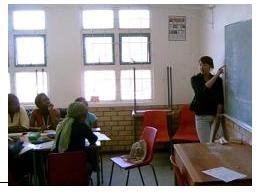 Ubunye at the University of Cape Town (South Africa) is a student-run organization established in 2007 by the directors of three student-run organizations that had similar needs and development aims: Inkanyezi, TeachOut and the Township Debating League. Shortly after Ubunye was established, the Media School joined. For several years these organizations had been operating independently, while informally collaborating on some group activities. Ubunye was established to act as an umbrella organization, to facilitate better coordination of such collaboration, to provide oversight for the projects, and to consolidate their campus presence at the University of Cape Town. Ubunye’s projects fulfill a variety of needs through various after-school activities with learners in township schools. Inkanyezi’s goal is to improve the post-school prospects for its learners through mentorship and career guidance, and facilitating applications for tertiary studies. The Media School runs classes in written, radio and photographic journalism and organizes school newspapers, providing a creative outlet for students in activities not provided by their vastly under-resourced township schools. TeachOut aims to improve the academic performance of township learners by providing academic tutoring in English, Functional English, Mathematics, Science and Accounting. The Township Debating League trains learners in debating and critical thinking and organizes a development debating league with over 20 underprivileged schools taking part in tournaments. Read Ubunye’s full profile.
Ubunye at the University of Cape Town (South Africa) is a student-run organization established in 2007 by the directors of three student-run organizations that had similar needs and development aims: Inkanyezi, TeachOut and the Township Debating League. Shortly after Ubunye was established, the Media School joined. For several years these organizations had been operating independently, while informally collaborating on some group activities. Ubunye was established to act as an umbrella organization, to facilitate better coordination of such collaboration, to provide oversight for the projects, and to consolidate their campus presence at the University of Cape Town. Ubunye’s projects fulfill a variety of needs through various after-school activities with learners in township schools. Inkanyezi’s goal is to improve the post-school prospects for its learners through mentorship and career guidance, and facilitating applications for tertiary studies. The Media School runs classes in written, radio and photographic journalism and organizes school newspapers, providing a creative outlet for students in activities not provided by their vastly under-resourced township schools. TeachOut aims to improve the academic performance of township learners by providing academic tutoring in English, Functional English, Mathematics, Science and Accounting. The Township Debating League trains learners in debating and critical thinking and organizes a development debating league with over 20 underprivileged schools taking part in tournaments. Read Ubunye’s full profile.
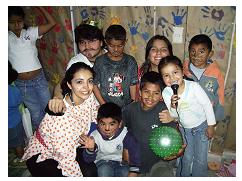 Vidas-Móviles (Moving Lives) at the Pontificia Universidad Javeriana (Colombia) was established in July 2006 by PUJ’s Medical School and the Colombian Association of Medicine Faculties (ASCOFAME) with the idea of developing a program that would ensure basic human rights to internally displaced people living in Bogota. The program provides counseling, assistance and psychological/social support to IDP families. The program works with clinics, schools, and food distribution centers to help these families to access basic services such as education, health, housing, and food security. Read Vidas-Móviles’ full profile.
Vidas-Móviles (Moving Lives) at the Pontificia Universidad Javeriana (Colombia) was established in July 2006 by PUJ’s Medical School and the Colombian Association of Medicine Faculties (ASCOFAME) with the idea of developing a program that would ensure basic human rights to internally displaced people living in Bogota. The program provides counseling, assistance and psychological/social support to IDP families. The program works with clinics, schools, and food distribution centers to help these families to access basic services such as education, health, housing, and food security. Read Vidas-Móviles’ full profile.